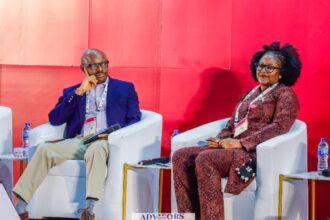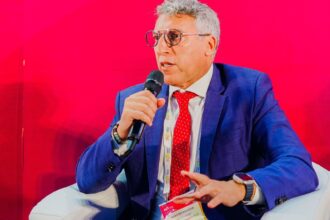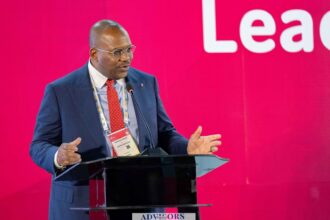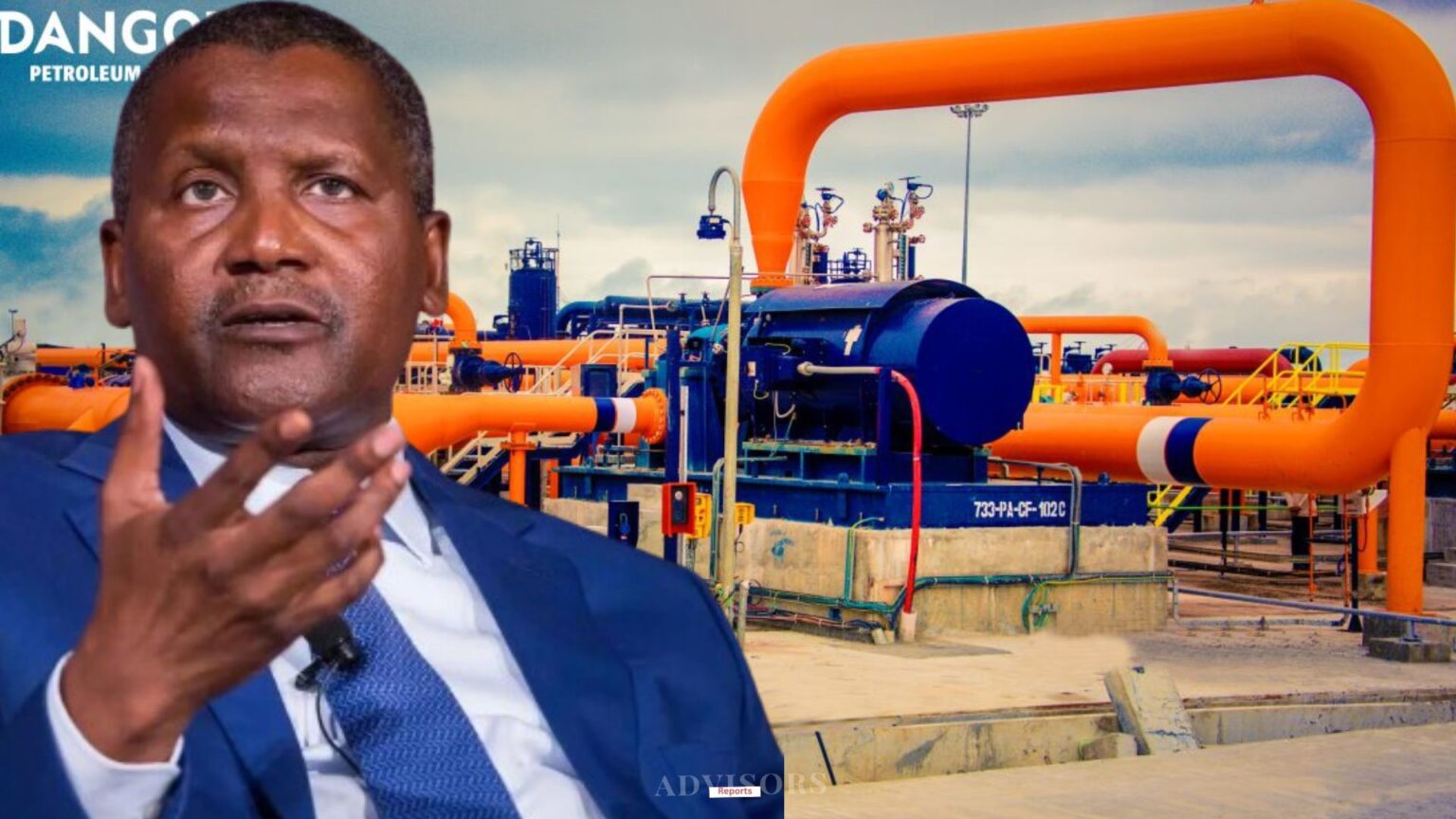… recommend regulatory reform, fair pricing, support to ensure success of Dangote Refinery
“Dangote refinery too big to fail… If it fails, Nigeria is bound to bear the consequences in long run” Professor Iledare
“Corruption permeates government institutions, Dangote must continue to fight for survival,” Ehimen, Chairman of Lagos PETROAN
Oredola Adeola
Industry experts have urged the Nigerian Government to curb unchecked anti-competitive practices by players in the upstream, midstream and downstream oil and gas sector, warning that the failure of the massive Dangote refinery complex would have severe long-term consequences for the country.
They emphasized the need for regulatory reform, fair pricing, and government support to ensure the success and economic impact of the Dangote refinery, which faces challenges from high sulfur imports, inflated crude prices, and pervasive corruption in Nigeria’s oil industry.
The experts made this known in a chat with Advisors Reports, in response to the recent concerns raised by Devakumar Edwin, Vice President of Oil and Gas at Dangote Industries Limited (DIL), about the survival of the Dangote refinery.
Edwin in a statement publised by Advisors Reports on Monday, blamed the Nigerian Midstream and Downstream Petroleum Regulatory Authority (NMDPRA) for permitting the importation of diesel and aviation fuel with high sulfur content from Russia.
He also criticized International Oil Companies (IOCs) in Nigeria for inflating local crude prices, forcing the refinery to import more expensive crude from countries like the United States.
Professor Wumi Iledare, Executive Director of the Emmanuel Egbogah Foundation for Petroleum, in his comment, noted that the Dangote refinery benefits from regulatory and fiscal incentives aimed at boosting investment and economic activity due to its operations within a free trade zone.
Professor of Petroleum Economics and Policy Research urged all players in the sector to be patient as the downstream sector adjusts to the presence of a large, functional refinery within Nigeria.
This adjustment period, according to him, is necessary for market stabilization and the integration of new supply dynamics introduced by the Dangote refinery.
Iledare acknowledged Edwin’s concerns regarding the importation of high sulfur content diesel and aviation fuel from Russia, adding that products sold in Nigeria must meet regulatory standards to ensure quality and safety.
He therefore called on the NMDPRA to enforce these standards strictly to protect consumers and the environment.
He criticized the IOCs for inflating local crude prices, describing the practice as anticompetitive. He stressed the need for effective regulation to ensure fair pricing and access to crude oil for local refineries.
According to Iledare, the downstream market in Nigeria is oligopolistic and highly anticompetitive, necessitating robust regulation to optimize benefits for both consumers and producers.
Iledare mentioned that the Petroleum Industry Act (PIA) 2021’s deregulation objective is often misconstrued as solely about pricing.
He explained that deregulation in the context of the PIA, does not mean the absence of regulations; instead, it ensures that products in the downstream market meet specific standards, with regulatory oversight remaining crucial.
Iledare asserted that the Dangote refinery is “too big to fail” due to its significant impact on Nigeria’s economy, warning that if the refinery fails, it will have severe long-term consequences for the country.
He also noted the interconnectedness of the industry’s success, adding that IOCs have more to lose than gain from the refinery’s failure,
Iledare called for transformational leadership in the oil and gas sector to effectively implement the PIA and curb anticompetitive behaviours such as price gouging.
He supported the Nigerian Upstream Petroleum Regulatory Commission’s (NURPC) efforts to enforce compliance, including the potential withdrawal of upstream licenses for violations.
Professor Iledare criticized the practice of pricing crude oil for domestic refineries outside the international market domain as anti-competitive, which he described as a dereliction of duty if the regulatory authority is aware of such conduct and fails to act against it.
He observed that Dangote is not seeking protectionist measures but is advocating for fair and transparent import licensing practices, warning the NMDRPA against allowing substandard petroleum products into Nigeria, as it harms the economy, environment, and energy security.
Iledare emphasized that the Dangote refinery is beneficial for Nigeria’s economy, far more than merely importing and selling petroleum products.
He also called on the government to address any anticompetitive behaviours that hinder the refinery’s access to crude oil and its overall competitiveness in the downstream market.
Mr. Joseph Ehimen, Chairman of the Lagos Chapter of the Petroleum Products Retail Outlets Owners Association of Nigeria (PETROAN), in his reaction, noted that IOCs have significant influence and vested interests in the Nigerian oil sector, often using their power to maintain control and resist changes that might threaten their dominance or profitability.
The PETROAN Chairman expressed the belief that the Nigerian government, through its policies and actions, does not truly support a free market in the petroleum sector.
He implied that there are deliberate attempts by the government to sabotage efforts toward market liberalization.
Ehimen indicated that Dangote’s refinery project, despite being a significant investment, faces numerous challenges, encouraging the management of the company to fight harder to navigate and overcome substantial obstacles to succeed, including political, economic, and competitive pressures.
Ehimen pointed to pervasive corruption within the oil and gas industry especially from the regulators suggesting that corrupt practices hinder transparency, efficiency, and fairness within the sector.
He revealed that the Petroleum Industry Act (PIA) failed to address core issues or deliver promised benefits, adding that the Act is likely either flawed in its design or implementation or serves the interests of a few rather than the broader industry and populace.
The PETROAN Chairman also described the NUPRC as a “toothless bulldog,” for lacking the power or will to enforce regulations properly.
Ehimen questioned why Nigerian oil marketers wouldn’t support Dangote’s refinery. He contrasted this with other African countries, where he believed Dangote would face fewer obstacles and unfair pricing practices, indicating that local support and fair pricing could enhance competitiveness and sustainability.
The PETROAN Chief has therefore called on the government to focus on initiatives that are aimed at lowering prices of diesel, petrol, and aviation fuel, which according to him would alleviate some of the economic pressures faced by consumers and businesses, potentially stabilizing the microeconomic environment and promoting economic recovery.





